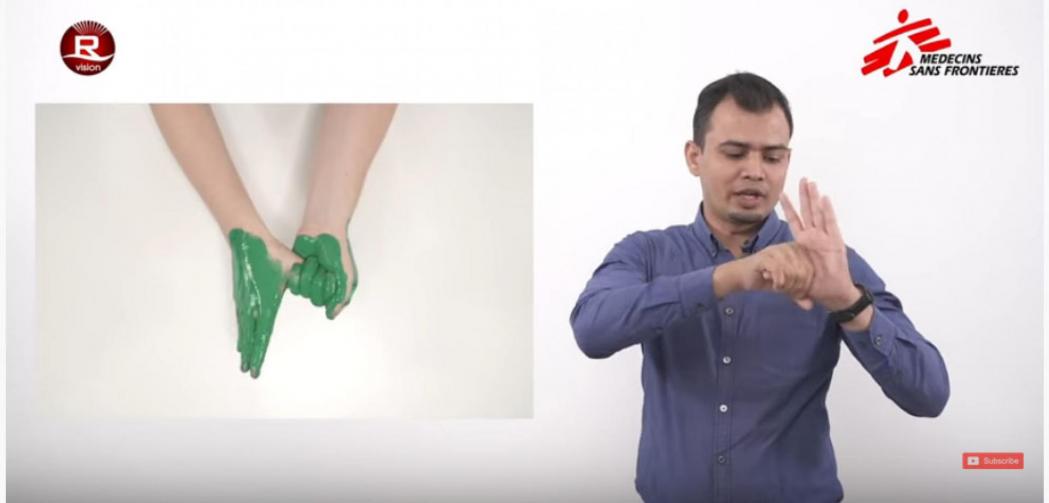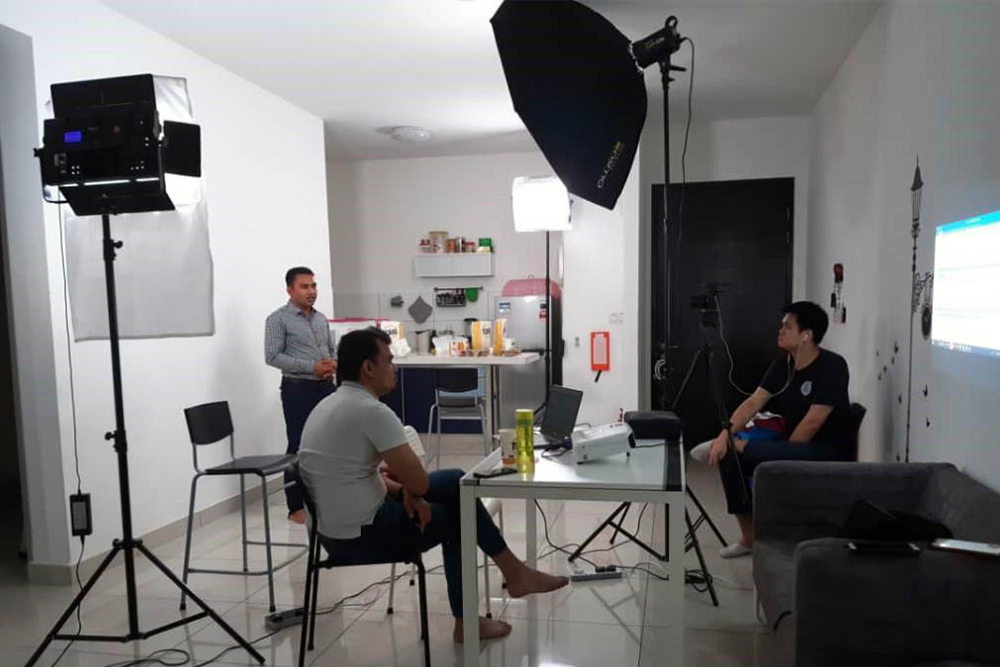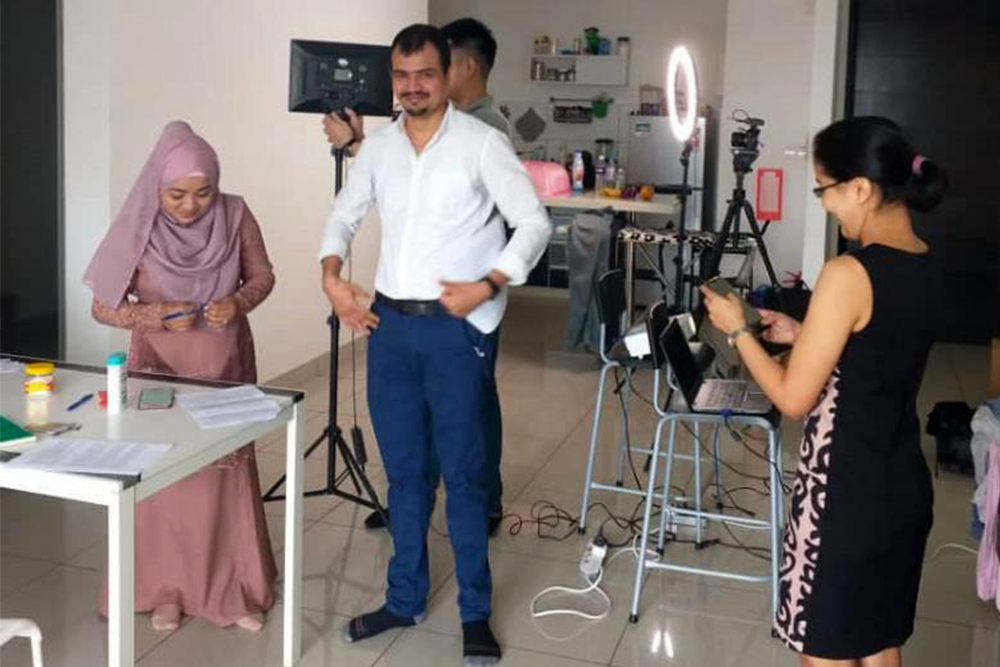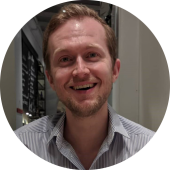Reaching thousands with a click: How the Rohingya helped guide COVID-19 awareness

A screenshot from an MSF broadcast for R-vision. @ R-vision/MSF
I arrived in Malaysia as Doctors without Borders/Médecins Sans Frontières (MSF)’s advocacy manager in November 2019, about two months before COVID-19 started to grip the world.
In our project in the north of the country, we provide healthcare to refugees and asylum-seekers, in particular people from the Rohingya ethnic group.
When the pandemic reached Malaysia, we saw how disproportionately this community was hit. Many hesitated to come forward for COVID-19 testing based on stigma and fears of arrest and detention when seeking healthcare. Refugees struggled to provide food for their families as they had lost their irregular income because of the coronavirus-related restrictions. On top of that, they were largely excluded from information campaigns about COVID-19.
We had to be creative to find ways to provide support and to make sure that information on COVID-19 would reach them.
Thanks to the Rohingya community themselves, we found a solution.
Malaysia does not officially recognise refugee status and has not signed the 1951 Refugee Convention. As a consequence, refugees and asylum seekers largely depend on NGOs and the public for support and healthcare.
However, at the start of the pandemic, many patients lost their access to healthcare as they could not get to our clinic when movements were restricted and roadblocks were set up.
This brought another problem. Our medical teams had started providing health education on COVID-19, but we were worried about the many people we couldn’t reach with this vital information.
At first, our strategy depended largely on posters and voice messages shared through messaging apps, which lots of other organisations were also using, but this wasn’t enough.
When asking around in the community, not many seemed to be aware of our messages.
The problem
We needed to understand why our approach wasn’t effective. Why weren’t our messages reaching the community as we had hoped?
“We found out that people didn’t really trust the many voice messages. They came from everywhere and everyone, not just from NGOs, and sometimes the information was contradictory. “
As a humanitarian affairs team, we try to understand the needs and concerns of the community and the barriers to healthcare they face. This helps us to advocate for access to essential medical care and protection. We get our information directly from the communities. Because of this, we have built up our experience in conducting surveys and taking testimonies.
So, we decided to support the medical team, and in a joint effort we launched a survey among our Rohingya patients and the wider community to understand better how we could reach them and where they get information from.
Missing trust
We found out that people didn’t really trust the many voice messages. They came from everywhere and everyone, not just from NGOs, and sometimes the information was contradictory.
Community members were not sure what to believe. And while some people were getting too many messages, others did not receive any information at all.
A potential solution?
So, now the community had helped us to understand the problem, what was the solution?
Many of the people we spoke to in our survey recommended we provide information through R-vision, an online media network in the Rohingya language. We decided to get in touch with R-vision to find out more.

An episode on COVID-19 awareness being filmed for R-vision. © MSF
R-vision reaches the Rohingya community worldwide through YouTube and Facebook. Its posts are seen not only in Malaysia, but also in Saudi Arabia, Myanmar and even the camps in Bangladesh, where, despite regular ruptures in internet connection, people download their videos and share them with each other.
In our survey, we asked the community what they knew about the virus and whether there was anything in particular they were concerned about. Based on their input we decided to make four health educational videos on COVID-19 in the Rohingya language, which we would then share through R-vision.
MSF on the air
Making the videos was only possible thanks to the key role of our Rohingya volunteers in Malaysia, who spent hours translating the scripts and rehearsing as our “news anchors” in front of the camera.
We covered COVID-19 prevention measures, explained hand-washing, isolation and how people could make their own masks. We also dedicated a video to mental health, reflecting on how people could support each other during the outbreak.
“It clearly shows that we should always listen to the advice of the communities we try to support. They know what the knowledge gaps are, what the needs are and how to reach their people. “
We built our own “studio” at a colleague’s home with a local videographer. Supported by the MSF office in Amsterdam we also developed pictures and pictograms.
For each video we checked with our patients to make sure that what we were explaining made sense to them.
Real impact
In September, our videos were aired on R-vision. Weekly we saw how the videos got more views on YouTube.
First they reached 5,000 views, which is more or less what we had hoped.
But then it went up to 10,000, and eventually 25,000 views. And these numbers don’t include the offline views – where people have downloaded a video and shared it that way.
The videos were shared widely. We even saw that other organisations used them in the refugee camps in Bangladesh for health education purposes.

Preparing the makeshift studio. © MSF
In comments on YouTube, Rohingya people told us how they would use what they had learned to protect themselves. They also asked us if we could make more videos about other topics.
Based on their suggestions, we are currently looking at developing another series of videos at the start of next year.
The lesson learned
We hoped the campaign would work, but this was better than expected.
Our teams in Malaysia were proud and happy that so many people were able to watch our videos and be informed about COVID-19. Our volunteers featured in the videos got messages from the community and Facebook requests from all over the world.
I think it clearly shows that we should always listen to the advice of the communities we try to support. They know what the knowledge gaps are, what the needs are and how to reach their people.
Going forward, in our project, we will make sure to consult with them more, and to ask their feedback on how they think we are doing. This will help us to make our services even better.
Working together
In international news, we don’t read or hear a lot about the Rohingya in Malaysia. Most stories and reports are about Rakhine State in Myanmar, about the Rohingya Genocide case at the International Court of Justice, or about the world’s largest refugee camp, Cox’s Bazar in Bangladesh.
Yet, there are between 100,000-200,000 Rohingya present here. Many have reached Malaysia after long journeys on small boats across the Andaman Sea. While their daily life is very different to living in a refugee camp, there are considerable support needs.
Marginalised communities like the Rohingya in Malaysia are always among the most vulnerable in a crisis, which is why they are often a focus of MSF’s work.
In times of COVID-19, it is vital that we do not forget about them, and make sure they are included in the public health response to fight the pandemic.
As this project has shown, an organisation like Doctors without Borders/Médecins Sans Frontières (MSF) can bring the resources, but combining these with the expert knowledge of the communities themselves helps to ensure that we’re making the biggest impact possible.

Elko Brummelman is currently on assignment as Advocacy Manager with MSF in Malaysia.
Previously, he worked in MSF's office in Amsterdam. Before joining MSF he worked with organisations focusing on inclusive approaches for the humanitarian sector and community engagement.